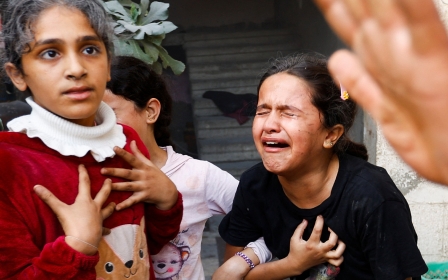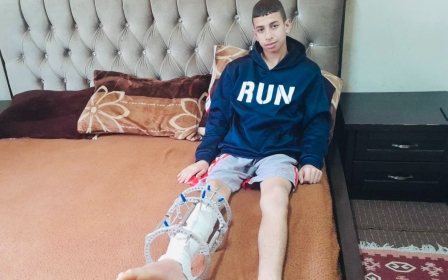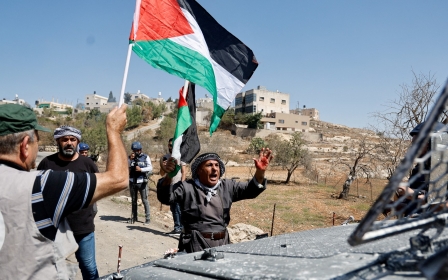Why Israel can torture detained Palestinian children with impunity
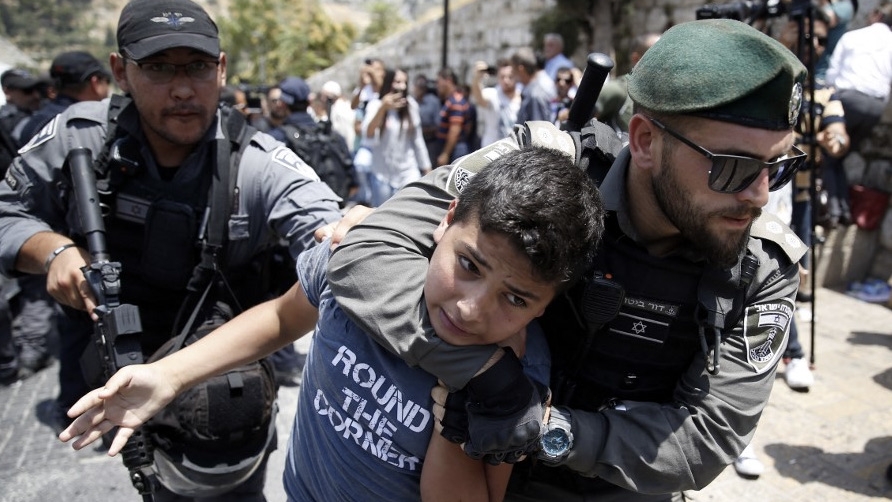
Over the last few days, Israeli authorities have released dozens of Palestinian child prisoners in exchange for Israeli hostages held by Hamas.
Many people around the world seem to be asking, perhaps for the first time, why does Israel imprison so many Palestinian children?
Since the Second Intifada, in 2000, when Defense for Children International - Palestine (DCIP) began tracking Palestinian children detained by the Israeli military, Israeli forces have detained, interrogated, prosecuted and imprisoned approximately 13,000 Palestinian children.
Each year, the Israeli military detains between 500 and 700 Palestinian children.
All Palestinians in the occupied West Bank, including children, have been subject to Israeli military law since 1967, when Israel annexed it.
New MEE newsletter: Jerusalem Dispatch
Sign up to get the latest insights and analysis on Israel-Palestine, alongside Turkey Unpacked and other MEE newsletters
Israeli settlers living in the same territory, however, are subject to Israeli civilian law - a crystal clear example of apartheid.
Despite the fact that international norms affirm that civilians, including children, must never be brought before military courts, Israel remains the only country in the world to automatically and systematically prosecute children in military courts.
Torture
These children, who are almost all boys, range in age from 12 - the age of criminal responsibility under Israeli military law - to 17, although DCIP has documented cases where children younger than 12 were detained and harassed by Israeli forces for hours.
Under international law, a child is any person under the age of 18.
Follow Middle East Eye's live coverage for all the latest on the Israel-Palestine war
Between 2016 and 2022, DCIP collected sworn affidavits from 766 Palestinian children detained by the Israeli military and prosecuted in Israeli military courts to track their experiences of ill-treatment and torture at the hands of Israeli forces.
Thanks to that data, we can say confidently that denying the basic human rights of Palestinian children is business as usual for Israeli forces.
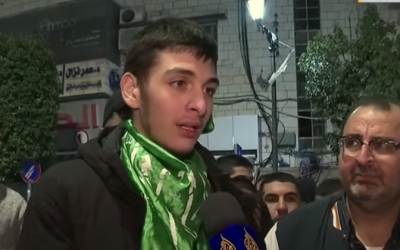
Three out of five of these children are detained from their homes in the middle of the night, according to documentation collected by DCIP. Israeli forces show up at a Palestinian family’s home at two or three in the morning, break down the door, wake up the whole family, and drag the child out of his bed.
At that moment, 75 percent of children experience some form of physical violence at the hands of Israeli soldiers.
After that, nearly all children are blindfolded and hand-tied before being forced into an Israeli military vehicle en route to an interrogation centre, often located in an illegal Israeli settlement. During this time, that child’s parents have no idea where he’s being taken or when he will come home.
Upon arrival at an Israeli interrogation centre, 80 percent of children are strip-searched by Israeli soldiers. Then, an adult Israeli interrogator, speaking expert Arabic, interrogates the child without the presence of a family member or a lawyer.
In fact, there is no right to a lawyer during interrogation under Israeli military law. Two-thirds of children are not properly informed of their rights, and 55 percent are forced to sign documents in Hebrew, a language they don’t understand.
Detained without charge
Israeli interrogators place one in four children into pre-trial solitary confinement for the purpose of extracting a confession - a method deemed torture by the United Nations.
All of this happens before a trial - also conducted by Israeli soldiers in a military court. The conviction rate is higher than 95 percent, a number that tells you all you need to know about the Israeli military’s interest in justice.
The most common charge against children is stone-throwing, which carries a potential maximum sentence of up to 20 years.
Israeli interrogators place one in four children into pre-trial solitary confinement for the purpose of extracting a confession - a method deemed torture by the United Nations
However, many Palestinians, including children, are detained by the Israeli military without charge or trial, meaning they are held indefinitely in Israeli military prisons, a practice known as administrative detention.
DCIP has documented cases where Palestinian children are held in administrative detention for more than a year.
The Israeli military detention system, at every point, is designed to exert complete control over Palestinian children and their families. From the moment Israeli soldiers break into a Palestinian family’s home in the middle of the night, children know that their parents cannot keep them safe.
While many Palestinian children have been released from Israeli prisons this week, Israeli forces have been busy conducting raids and arrests every night across the occupied West Bank.
Even with the whole world watching, Israeli military brutality is operating with impunity, like clockwork, emboldened by the killing of more than 6,000 Palestinian children in Gaza, with only a handful of world leaders holding them accountable.
The views expressed in this article belong to the author and do not necessarily reflect the editorial policy of Middle East Eye.
This article is available in French on Middle East Eye French edition.
Middle East Eye delivers independent and unrivalled coverage and analysis of the Middle East, North Africa and beyond. To learn more about republishing this content and the associated fees, please fill out this form. More about MEE can be found here.



